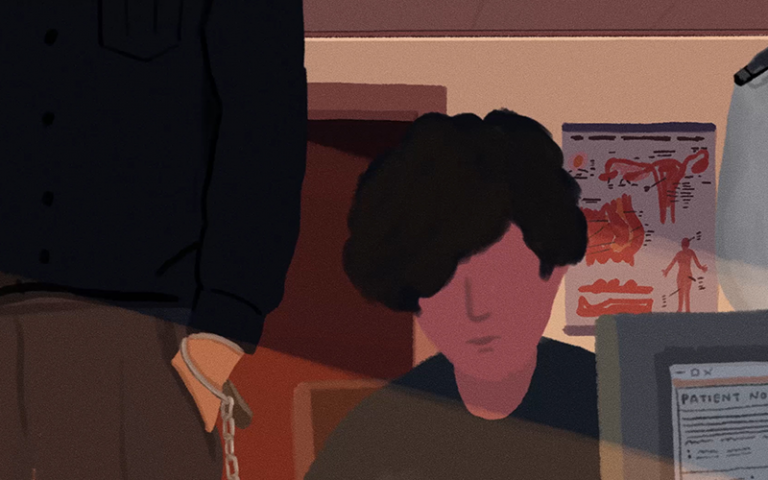Prisoners experience inequality of healthcare in hospitals
22 June 2020
Fear, stigma, reduced autonomy and security requirements have resulted in prisoners receiving lower standards of secondary healthcare than the wider community, finds a new UCL-led study.

Published today in The Lancet EClinicalMedicine, the study explores accounts of around 40 prisoners, and is the first to consider how people in prisons experience hospital healthcare.
It shows that people in prison experience a range of issues not experienced by the wider community and that equivalence of care is highly challenging in hospitals. This includes physical and practical considerations such as delays in access, but also differences in patient experience such as shame and lack of autonomy.
Study participants disclosed several key issues, such as having no prior knowledge or control over appointments - including their arrival time or means of transport to the hospital - as well as delays well over the NHS target of 18 weeks from referral to treatment due to cancellations and prison-to-prison transfers, potentially exacerbating their illness.
The research team discovered that prisoners “undergo feelings of dehumanisation as part of the healthcare process”, remaining chained to officers throughout the hospital visit. Prisoners also reported that they had been forced to wait in inappropriate spaces by hospital staff, such as cupboards, to ensure they were out of view of the general public.
During appointments, study participants recalled instances of healthcare professionals speaking only to prison officers, with one participant recalling that this made them feel “frustrated, upset and patronised, feeling little more than an observer in relation to their own healthcare”.
Prisoners also highlighted issues around privacy for intimate medical examinations, with some inspections taking place in the presence of prison officers.
Furthermore, once back in prison, some patients found that the medication prescribed or given by the hospital is confiscated or unavailable for prescription due to lack of awareness amongst hospital prescribers of prison and healthcare drug policies.
The study emphasised that as long as appointments take place offsite at local hospitals, these issues are unlikely to change significantly, and suggests that alternative models such as telemedicine and integrated prison hospitals systems must be explored to overcome the long waits and cancellations that result in breaches of health system waiting time standards.
Lead author, PhD student Chantal Edge (UCL Collaborative Centre for Inclusion Health and UCL Institute of Epidemiology & Health Care), said: “Our research reaffirms the importance of ensuring a person-centred approach to hospital care is taken for people in prison. We hope that by raising awareness of these in-equivalences, hospital staff and clinicians can work in partnership with their local prisons to make improvements.
“There are many small actions that hospital staff can employ day-to-day to improve experiences for prisoners, from making sure they have somewhere dignified to wait for their appointment through to appropriate prescribing. Embracing big system changes like telemedicine appointments will also remove issues with access and stigma associated with attending appointments at the hospital.”
The team performed qualitative analysis of interviews and focus groups with prisoners who have experience of accessing hospital healthcare from prison. In total, 45 people (21 female, 24 male, average age 41) took part across five prisons in England. Participants were purposively recruited for diversity in gender, age and ethnicity and prisons were selected to ensure a mixture of participants both by sex, but also by sentence type (remand and sentenced prisoners).
To complement the research findings, the study authors have developed a five-minute animation in collaboration with a professional animation team and narrated by current prisoners to present issues in the words of the patients themselves, to be used as engagement tool for discussions as to how services can be made more inclusive for prisoners.
Animation by Tjoff Koong Studios, Passion Pictures. Narration by current prisoners. Service User engagement supported by User Voice.
Links
- Research paper in The Lancet EClinicalMedicine
- Chantal Edge’s academic profile
- UCL Collaborative Centre for Inclusion Health
- UCL Institute of Epidemiology and Health Care
- Media coverage
Image
Credit: Passion Pictures
Media contact
Evie Calder
Tel: +44 (0) 7858 152143
Email: e.calder [at] ucl.ac.uk
 Close
Close

